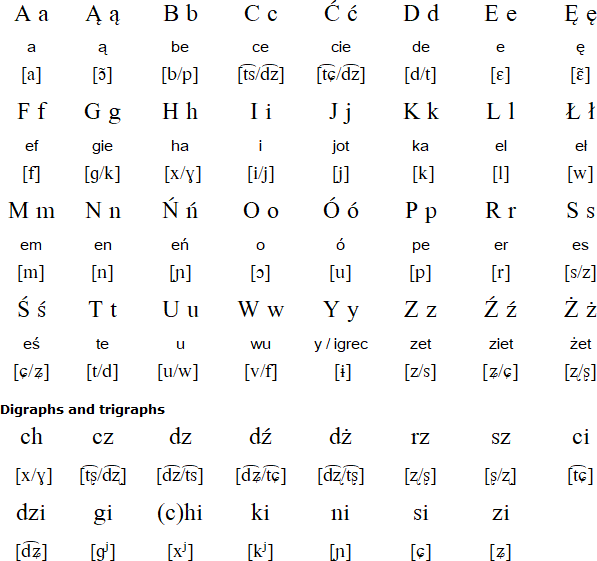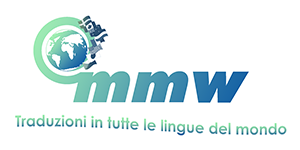Polish (język polski)
Polish is a Western Slavonic language with about 40 million
speakers in Poland, Lithuania and Belarus. There are also fairly large
communities of Polish émigrés in the UK, USA, Canada, Ireland
and Brazil. Polish is closely related to Kashubian, Lower Sorbian, Upper Sorbian,
Czech and Slovak.
Polish first appeared in writing in 1136 in the "Gniezno papal bull"
(Bulla gnieźnieńska), which included 410 Polish names.
The first written Polish sentence was day ut ia pobrusa a ti poziwai
(I’ll grind [the corn] in the quern and you’ll rest), which appeared in
Ksiega henrykowska in 1270. In Modern Polish spelling that sentence
is daj ać ja pobruszę, a ty poczywaj.
Great Polish poets include Jan Kochanowski (1530-84) and Adam Mickiewicz
(1798-1855), the ‘national bard’ and author of an epic entitled "Pan
Tadeusz". The most famous writer of Polish orgin is Joseph Conrad
or Konrad Korzeniowski (1857-1924), who wrote in English and started
out as a sailor.
Literary Polish is based on the dialects of Gniezno, Cracow and Warsaw,
though there is some dispute about this.
The native name for Polish is polski (Polish), język polski
(the Polish language), or more formally, polszczyzna (Polish).
Polish alphabet (alfabet polski) & pronunciation

Notes
- a is a low central vowel for which there is no symbol in the IPA
- ą = [ o ] before l or ł
- ę = [ e ] before l or ł or at the end of a word
- The i in ci, dzi,
ni, si and zi is not
pronunced when they are followed by another vowel, e.g. dzień - u sometimes = [w] in loanwords like
auto [awtɔ] ‘car’ - ó is called u kreskowane
- The letters q (ku), v (fau) and
x (iks) are also used, but only for foreign names or words.
Polish pronunciation is actually a lot more complicated than shown above.
Notes on pronunciation provided by Grzegorz Jagodziński
Sample text in Polish
Wszyscy ludzie rodzą się wolni i równi w swojej
godności i prawach. Są obdarzeni rozumem i sumieniem i
powinni postępować wobec siebie w duchu braterstwa.
A recording of this text by Marcin K.
Translation
All human beings are born free and equal in dignity and rights. They
are endowed with reason and conscience and should act towards one another
in a spirit of brotherhood.
(Article 1 of the Universal Declaration of Human Rights)
